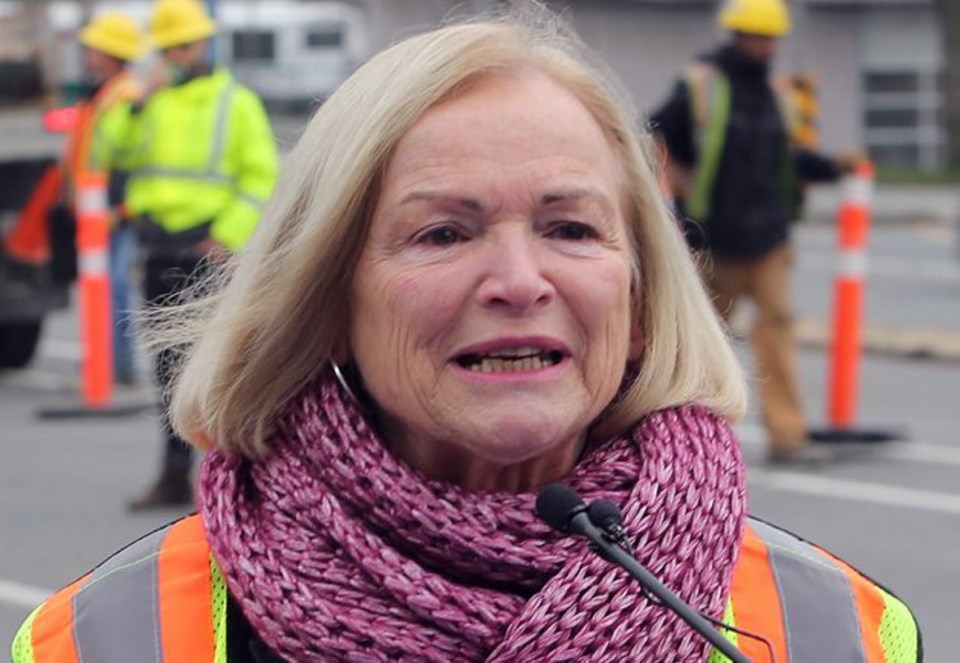Greater Victoria is a big step closer to getting a gasoline-tax increase that could add more than $6 million a year to Victoria Regional Transit Commission coffers, says its chairwoman.
The development comes after B.C. Finance Minister Mike de Jong said he didn’t think the commission had demonstrated public support for the two-cents-per-litre increase, said Susan Brice, who is also a Saanich councillor.
“So we went out and approached not only the [Capital Regional District], but every municipality, and we got written support from 12 of 13.”
Only Metchosin did not give written support.
Brice said she presented the results to de Jong and Transportation Minister Todd Stone about a month ago.
“They both said to me: ‘Yes, you have demonstrated that the community is behind this, we will agree to your request.’ ”
Brice told the commission about the progress at its meeting this week.
The gas tax — which is charged at the gas pump — is one of three “levers” the commission has to raise money, along with fares and property tax, Brice said.
The last gas tax increase occurred in 2008, when it rose to 3.5 cents per litre from 2.5 cents. The tax generates about $11.7 million annually.
An increase of two cents per litre, to 5.5 cents, would raise more than $6.8 million a year.
The increase still needs legislative approval, which Brice hopes will come in the fall. “But certainly, having the minister of finance and the minister of transportation, this is certainly in every aspect a green light.”
With transit due to receive a share of $90 million in federal money earmarked for such things as new buses and infrastructure, Brice said the gas tax — which is applied to operating expenses — takes on increased importance.
“We now have got the operating money to pay for the bus driver, pay for the gasoline, pay for the maintenance. We need both pieces of that equation in order to improve the service.”
There is also $68 million from the province due to be distributed for transit service.
Expansion of transit service and a new depot have been identified as key needs, Brice said.



